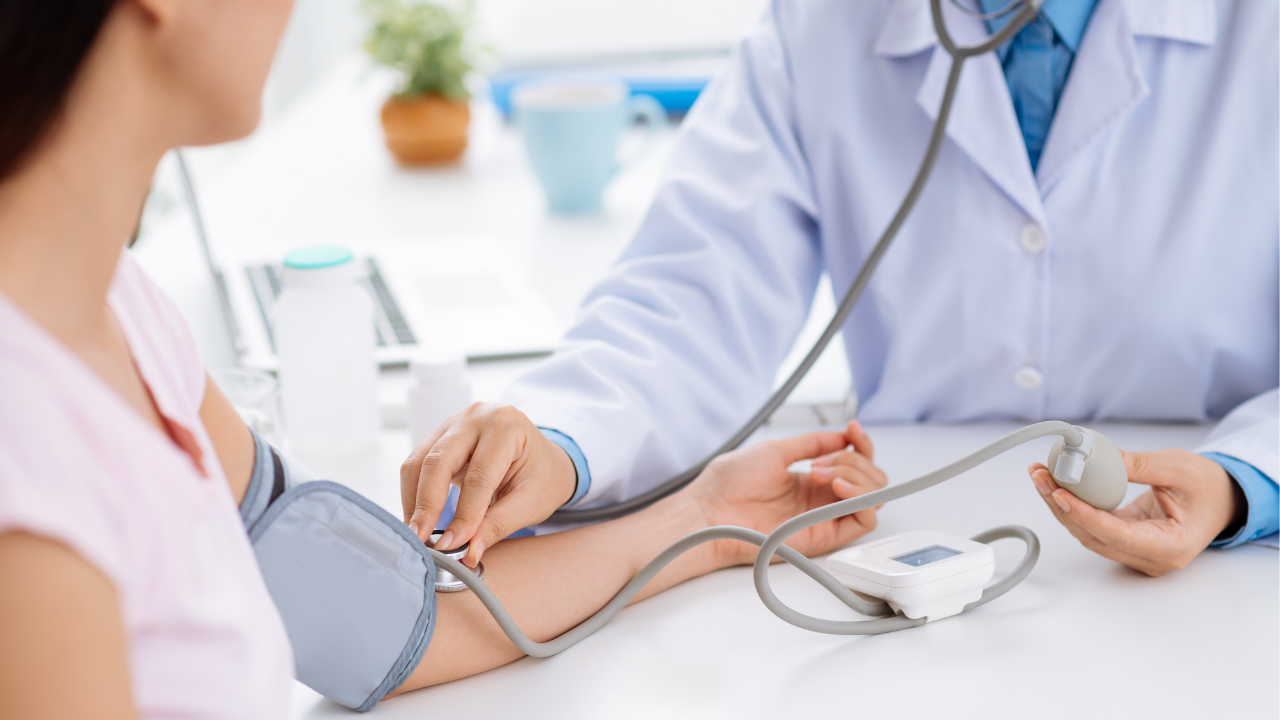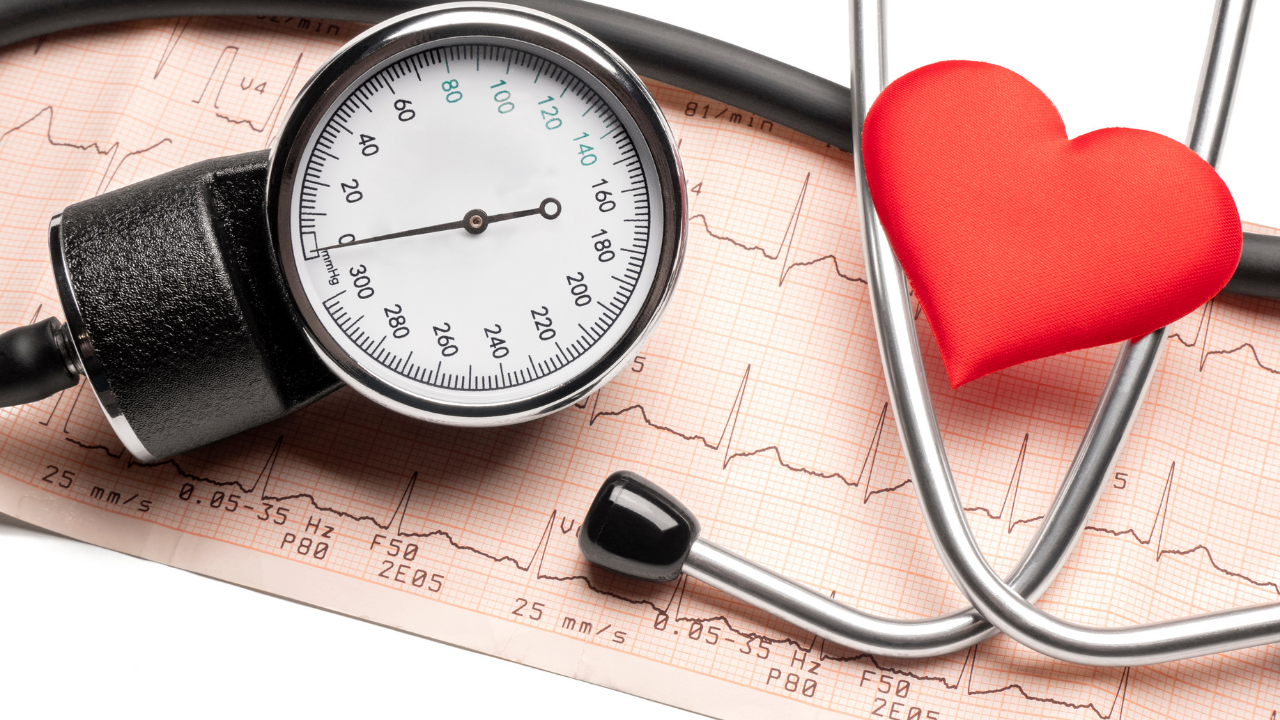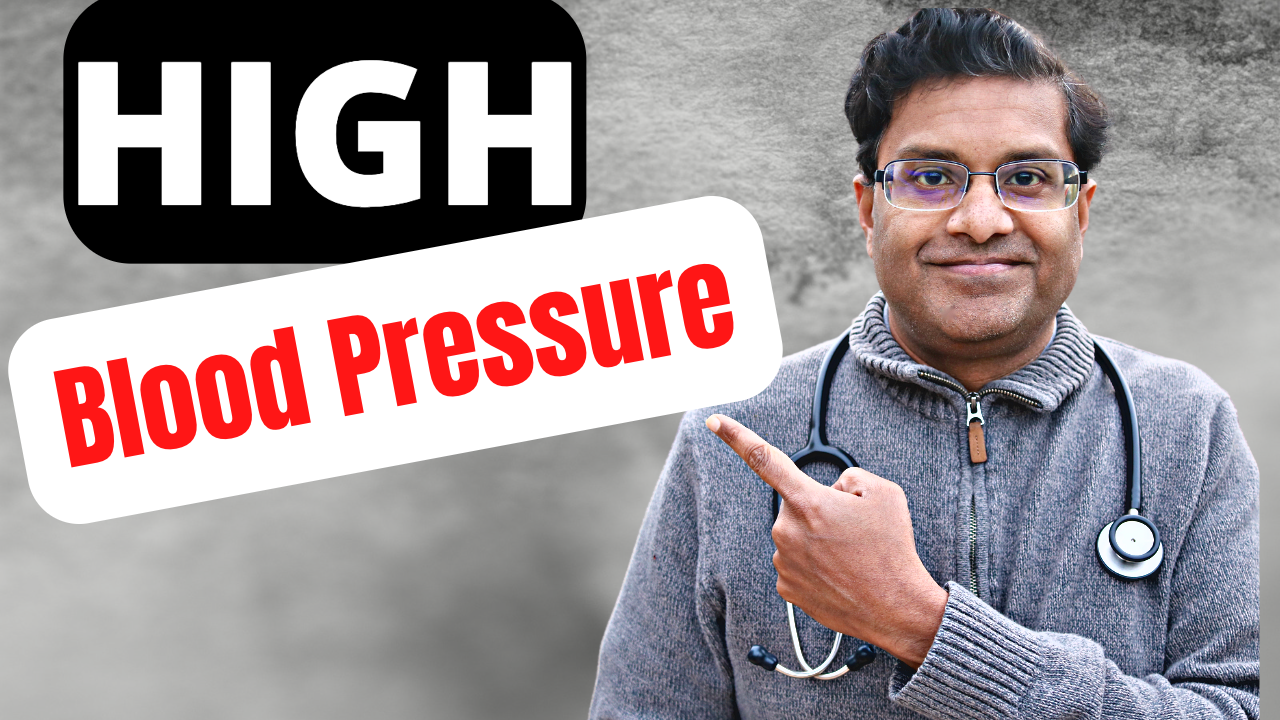Your heart is a muscle.
The job of your heart is to pump blood around your body.
Your blood essentially is made up of liquids and some solids. The solids are your red blood cells, your white blood cells, and platelets. The liquid part is made of plasma, protein, and salts. Red blood cells are important for carrying oxygen to the various tissues and organs in your body.
Now, if your heart must work harder against a resistance this will wear down your heart because it must do more work.
Your want your heart to work when conditions are ideal. This is when your blood pressure is normal.
What is deemed normal per guidelines?
- There are 2 numbers we look at.
- The top number is your systolic blood pressure,the bottom number your diastolic blood pressure.
- You want the top number to be less than 120 mmHg and the bottom number to be less than 80 mmHg.

Now imagine a garden hose. For a water hose to work in needs to be kink free so that water can flow through it freely. Now, if you were to step on the hose it would build up water pressure behind the area you are stepping on.
The analogy would be that your blood vessels are like the water hose. Like the resistance in the water hose, you blood vessels can get blocked as well. This can happen when cholesterol accumulates on your artery walls building a plaque. Like your foot on the garden hose this will obstruct the flow of blood through your arteries as they are narrower. Pressure builds up behind this blockage and this can cause damage to the inner artery walls by causing tiny tears. Over time, because of sustained pressure your heart will be affected as it must work harder to keep blood flowing in your body. That is why if your blood pressure continues to remain high you are at an increased risk for heart disease, strokes, or heart failure.
What are factors that can influence blood pressure?
Here are 5 factors and I will expand a bit on the first three:
1.Peripheral vascular resistance
2.Cardiac output
3.Blood viscosity
4.Volume of circulating blood
5.Vessel wall elasticity
1.Peripheral vascular resistance
In the previous segment the resistance I was talking about, in medical school we refer to this as peripheral vascular resistance. Another way of looking at this is how well your blood vessels can expand if there is increased content, in this case blood. We refer to this” expandability” as compliance. Let’s use another analogy. A pipe made from metal is stiff, therefore not compliant. A balloon on the other hand can expand, therefore is more compliant. If we look at our arteries, these are the blood vessels that carry blood away from our body, they become stiffer the older we get because of calcification Another reason they get stiffer is because of atherosclerosis. This is when your arteries become thicker and stiffer because of the buildup of plaque. Now, we know that when vessels become stiffer, they become less compliant. They cannot expand to accommodate adequate blood flow. This increases resistance to blood flow and the pressure within the arteries increase.
That is why we say you have high blood pressure. The medical term is hypertension. The word itself describes exactly what is going on in your blood vessels. Hyper means “beyond” or “over”. Tension means “stretching” or “straining”. Therefore, Hypertension means “straining beyond.” With hypertension your blood pressure is high, causing a strain on your blood vessels.
2.Cardiac output
This refers to how much blood or the volume of blood that your heart pumps in a minute. In other words, anything that influences cardiac output such as stress will affect your blood pressure.
holding a red heart
3.Blood viscosity
The viscosity of your blood depends on solids found in your blood such as plasma proteins. The thicker your blood the stickier it gets. If your blood becomes stickier it affects your blood flow and pressure. Perhaps the best analogy would be comparing the flow of water and honey. For example, smoking can make your blood thicker making it easier for it to clump together.
What is blood pressure?
Blood pressure, as the name implies, is the pressure or force that your blood exerts on the inner walls of your arteries. Throughout your day your blood pressure can go up and down.
You might go to you Doctor’s office and they might say your blood pressure 140/93.
What do these numbers mean?
These two numbers help us understand what is going on in your body.
The first number is your systolic blood pressure. This is the pressure in your arteries when your heart beats, that is when your heart is contracting. When that number is higher, we know that your heart must work harder with every beat to push blood around your body.
The second number is your diastolic blood pressure. This number reflects the pressure between the beats when your heart is relaxing.
What are normal blood pressure numbers?
 According to the American College of Cardiology
According to the American College of Cardiology
- Normal blood pressure is defined as less than 120 mmHG and less than 80 mmHg.
- A blood pressure is defined as elevated when the systolic blood pressure 120-129mmHg and less than 80mmHg.
- High blood pressure stage 1 is defined as 130-139 mmHg or 80-89mmHg.Hypertension stage 2 is defined as more than 140mmHg or more than 90mmHg.
What is the prevalence of blood pressure in the USA?
Nearly half of adults in the United States (47%, or 116 million) have hypertension, defined as a systolic blood pressure greater than 130 mmHg or a diastolic blood pressure greater than 80 mmHg or are taking medication for hypertension.
According to the WHO website “an estimated 1.28 billion adults worldwide aged 30-79 years old have hypertension.”
What affects your blood pressure at your doctor’s office?
1.What you ate or drank before the measurement. If you drank coffee or smoked or even exercised within 30 minutes of your doctor’s visit this would make your blood pressure go up.
2.The way you sit can affect your blood pressure. If you let you arm droop or cross your legs blood pressure will go up.
3.Anxiety while having your blood pressure measured would make it go up.
How should you be sitting when your blood pressure is being measured?
1.Sit comfortably upright with back support. Ideally this should be 5 minutes before the measurement
2.Do not talk during the reading
3.Ideally your bladder should be empty. A full bladder can affect your blood pressure.
4.Do not eat or drink 30 minutes before your BP reading
5.Have your feet flat on the ground without crossing them
6.Rest your arm at chest height
7.The cuff should be against your skin and not bare skin
So, as you can see a lot of things can affect your blood pressure. That is why if your health care provider is making the diagnosis there should be 2 or more elevated readings obtained on 2 or more occasions before a diagnosis is established.
Have you wondered what your healthcare provider is listening to whilst measuring your blood pressure?
First, your health care provider will inflate the blood pressure cuff around your arm. There is a gage attached to your cuff that measures your blood pressure.
Your health care provider will slowly let air out of your cuff while listening to your brachial artery. This is the artery running here in your elbow. The first beat they hear will be your systolic blood pressure. Your diastolic blood pressure is when they are unable to hear that beat anymore.
Symptoms of high blood pressure?
 Usually, people with high blood pressure do not have symptoms. That is why it is referred to as a silent killer. There are times when your blood pressure reaches a critically high level such as over 180/120 mmHg may experience symptoms such as headache, shortness of breath, chest pain, nose bleeds, severe anxiety.
Usually, people with high blood pressure do not have symptoms. That is why it is referred to as a silent killer. There are times when your blood pressure reaches a critically high level such as over 180/120 mmHg may experience symptoms such as headache, shortness of breath, chest pain, nose bleeds, severe anxiety.
What happens to your body when your blood pressure continues to be high?
You can’t feel it if your blood pressure is high.The problem is if this goes on for several months or years it gradually damages organs in your body.
Which organs can be affected? Your heart, brain, eyes, kidneys.So what does that mean? If your brain is affected you are at increased risk for a stroke, if your eyes are affected, this can lead to vision problems and in extreme cases blindness. If your heart is affected you are at an increased risk for heart failure or a heart attack.If your kidneys are affected this can lead to chronic kidney disease and kidney failure.With some individuals your sexual function will be affected.
All this sounds terrible and frightening and no wonder high blood pressure is called the silent killer. So, what can you do if your blood pressure is high?
This is going to be a series of articles on high blood pressure. Here is a link to an article on how to reduce blood pressure without medications: https://drthinkyourhealth.com/
You can watch the entire YT video here
Have a good day and Think your Health.
Sources:
1)https://www.acc.org/latest-in-cardiology/
2) https://www.cdc.gov/bloodpressure/
3)https://www.mayoclinic.org/diseases
4) https://www.healthline.com/health/
5) https://www.cdc.gov/bloodpressure/




